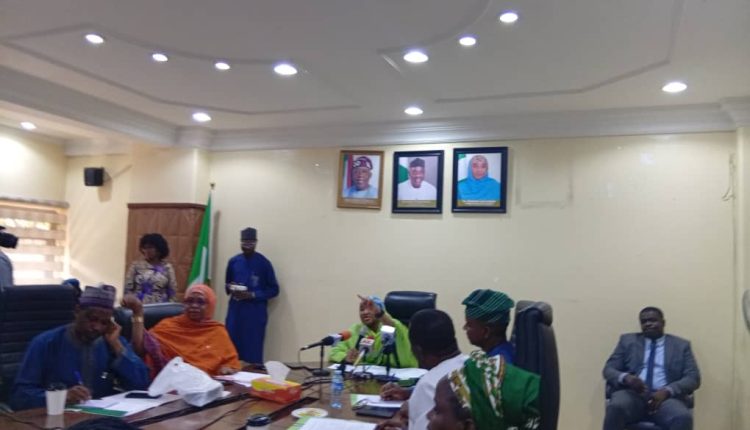FG, states collaborate to empower women, girls through LUMINAH initiative
|
Getting your Trinity Audio player ready...
|
The Federal Ministry of Education has unveiled a Luminah 2030 initiative, aimed at tackling gender disparities in education, empowering women and girls, and driving sustainable development across Nigeria.
The Minister of State for Education, Prof. Suwaiba Ahmad at the inaugural technical committee meeting with state commissioners of education in Abuja on Tuesday, said the initiative would address systemic challenges facing girls’ education.
Ahmad said the initiative would address girls challenges especially in underserved communities through a three-pronged approach- Root, Stem, and Bloom.
According to her, Luminah 2030 is not just a vision but a movement to dismantle long-standing barriers such as poverty, cultural norms, and geographical isolation that have denied girls their fundamental right to education.
“When you educate a girl, you educate a community. Lumina 2030 targets not only the girl child but also empowers the household, particularly the mother by creating ripple effects across entire communities.
“The Root phase of the initiative focuses on empowering mothers through vocational training and economic support. Beneficiaries will undergo three to six months of skills training.
“Economically empowered mothers are more likely to keep their daughters in school ” she said.
Ahmad added that the Stem phase would targets out-of-school girls aged five to 15 years with an accelerated three-year curriculum, enabling them to achieve basic education more quickly.
She added that this model would address the reality of overaged girls who may have never been enrolled or dropped out due to poverty, early marriage, or pregnancy.
She explained that the Bloom phase was however designed for adolescent girls aged 15–18 years, offering a one-year pathway to complete senior secondary education or vocational training.
“This is not a federal programme alone. States own the schools, and so implementation must be locally led. We need your full commitment to make Lumina work.
“The initiative also integrates financial literacy, entrepreneurship, digital learning, and gender equity principles, aiming for long-term sustainability through strategic partnerships, community mobilisation,” she said.
The mimister emphasised inclusivity while also ensuring priority is given to states and communities with high numbers of out-of-school girls and limited access to education infrastructure.
Also, the Head of the LUMINAH 2030 Secretariat, Mrs Amina Buba-Haruna,
described the initiative as a shared framework for driving inclusive growth, resilient systems, and women and girls-centred development.
She emphasised the initiative’s ambition to create a future where no woman or girl is left behind, adding that the programme is a collective drive for sustainable development, inclusive innovation, and national prosperity.
She noted that the Commissioners’ input was critical as the initiative transitions from planning to implementation.
“This important convening is hoped to unite all key stakeholders on a single vision for a future that is sustainable, inclusive, innovative, and resilient,” she stated.
“Your leadership and commitment at the sub-national levels are essential to the success of this initiative, and your insights will be pivotal as we move from strategy to coordinated implementation actions,” she said.
The News Agency of Nigeria (NAN) reports that the ‘LUMINAH’ initiative stands for Learning, Uniting, Modernising, Innovating, Nurturing, Accelerating, and Harmonising.
12 pilot states have been selected across the six geopolitical zones based on data on out-of-school children and existing gender policies for the programme.
The states includes: Yobe, Taraba, Kano, Jigawa, Benue, FCT, Ebonyi, Anambra, Bayelsa, Akwa Ibom, Lagos, and Oyo states. (NAN)



Comments are closed, but trackbacks and pingbacks are open.